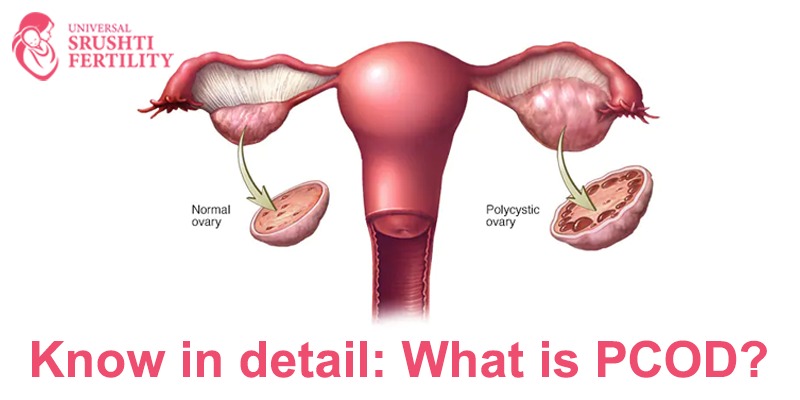Know in detail: What is PCOD?
There are many problems in the world today that are getting worse as time goes on. One of these conditions is called PCOD, and it is getting so common that it is almost like an epidemic.
What is PCOD?
PCOD, which stands for Polycystic Ovarian Disorder, is a disorder of the ovaries that is marked by three things:
- Hormonal Imbalance
- Enlarged ovaries
- On the ovaries, there are many small bubble-like cysts filled with fluid or water bubbles.
It is a metabolic disorder that most often affects women between the beginning of puberty and the beginning of menopause.
How are water bubbles in PCOD formed?
Usually, a woman’s ovaries store all of her female hormones and hold all of her eggs. During a normal menstrual cycle, the ovaries release between 6 and 12 follicles, which are small structures that look like cysts. Even though each of these has an egg, only one of them matures, turns into a luteinizing hormone, and moves toward the uterus to help a pregnancy happen. The other eggs just dissolve on their own over time. Let us now see How are water bubbles in PCOD formed?
But the problem starts when a woman’s hormones get imbalanced. In this case, the pituitary gland, which is in charge of making hormones, starts to make more male hormones (called androgens) instead of female hormones (estrogen). This makes the body make too many luteinizing hormones, which mess up ovulation. Because of this, many eggs start to mature in the follicles, but none of them break open to be released. This makes a lot of tiny cysts on the surface of the ovary, which can cause a long list of problems, such as irregular periods, constant tiredness, bad mood swings, weight gain, nausea, and often trouble getting pregnant naturally.
PCOS, or Polycystic Ovarian Syndrome, is a severe form of Polycystic Ovarian Disorder, which is why it is called a syndrome. PCOS is a metabolic syndrome or an endocrine disorder. Here, there are many cysts and a very bad imbalance of hormones. In PCOS, a woman’s ovaries make a lot more male hormones (androgens) than a woman’s ovaries do (estrogen). This makes ovulation much harder and has a bad effect on fertility. It also causes mood swings that are big and happen often anger, and male pattern hair growth or baldness. But unlike PCOD, PCOS is rare and can’t be cured.
Causes
- it can be genetic
- Excessive male hormones (androgens)
- Unhealthy eating habits
- Excessive stress
- Less sleep and sleep cycles that aren’t regular
- obesity
- Infection or inflammation of the abdomen
- Too much insulin
Symptoms
- Irregular periods
- Acne
- Sudden weight gain
- It’s hard to lose weight
- fertility problems
- Too much hair on the body
- Baldness in the middle of the hairline
- Face hair growth Constantly feeling tired and worn out
- Changes in mood that are frequent and big
Final words
If you have PCOD and your main goal is to get pregnant, you should talk to your doctor and understand What is PCOD actually. Your doctor will help you find the best way to get pregnant and start a family.


